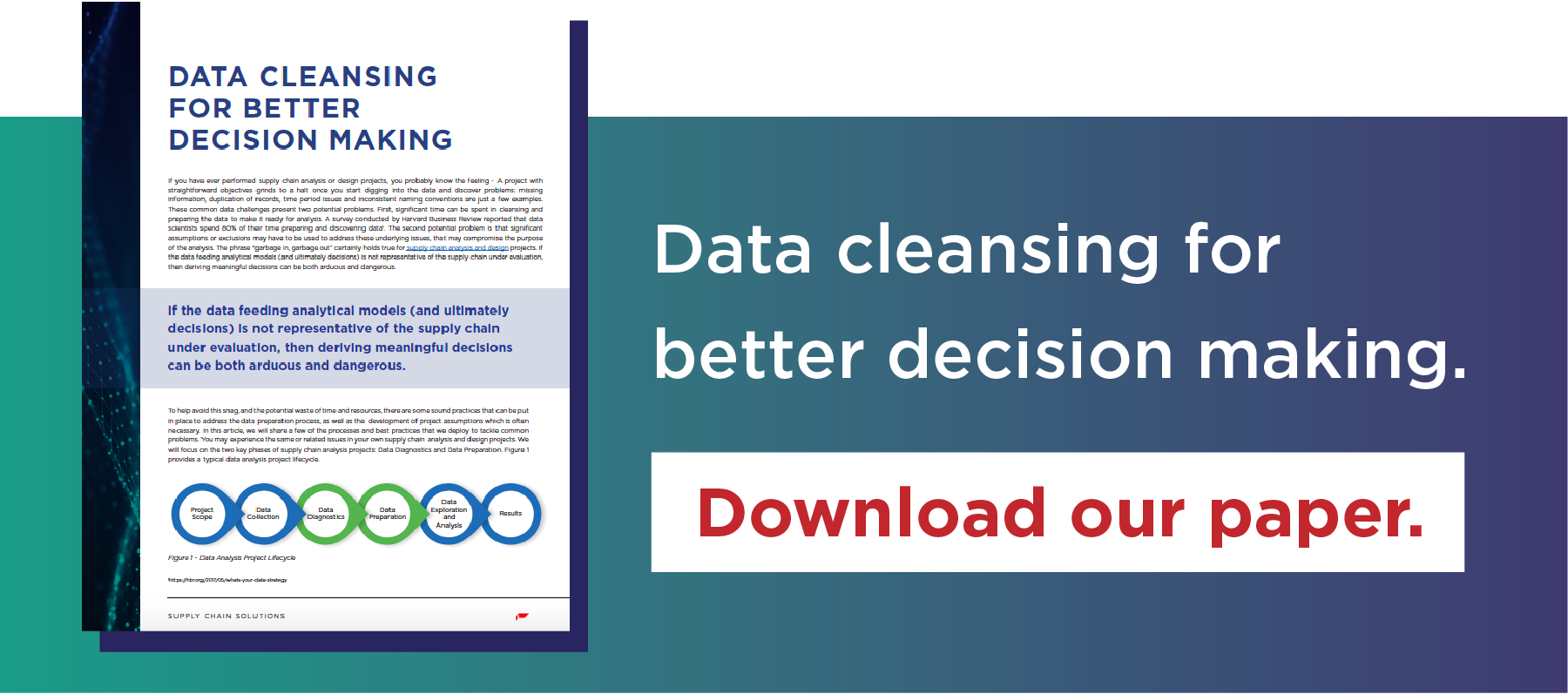
It’s the sinking gut feeling most supply chain professionals have felt at least once: a project with straightforward objectives painfully grinds to a halt because the data contains errors or is missing key elements. These typical data issues include:
- Geocoding: Identifying the actual locations for physical links in your supply chain (suppliers, customers, and warehouse locations) is critical for model accuracy as the distance is usually a proxy for transportation cost.
- Data Inconsistencies: Extracts from structured data sources often contain various naming conventions for the same thing (multiple versions of the truth).
- Transportation Mode Inconsistencies: Accurate representation of modes is important to validate model spend levels and identify network opportunities.
- Dates: When there are multiple files extracted from different geographies’ databases, we often see different date formats (mm/dd/yyyy vs. dd/mm/yyyy).
These common data challenges present two potential problems. First, significant time can be spent on cleansing and preparing the data to make it ready for deeper analysis. In fact, in a recent study conducted by Harvard Business Review, up to 80% of an analyst’s time can be spent preparing and discovering data. Second, substantial assumptions or exclusions often need to be deployed to "correct" these underlying issues which may compromise the quality of the analysis and the decisions being made. But, sound processes and validations can be put in place to ensure your project stays on track and produces sound results.
In the linked article, our Supply Chain Solutions team pulls back the curtain and provides an insider's look at some of the processes and best practices they deploy to wrangle data and adress these challenges. Read more about it here!




